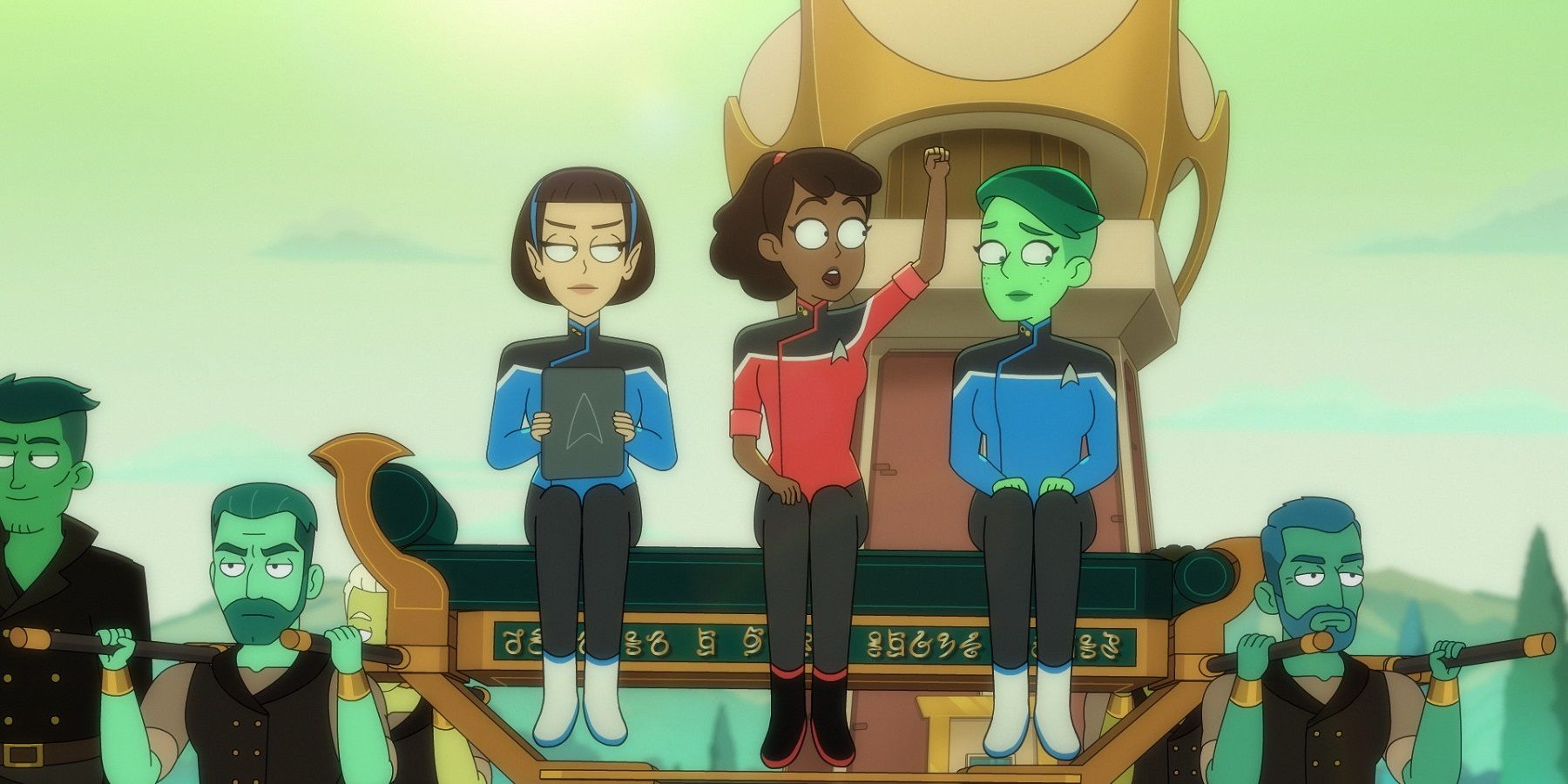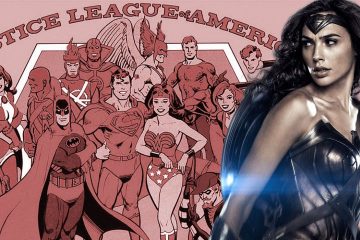One of the secrets of Star Trek: Lower Decks’ success over four seasons is how the storytellers mine the franchise for comedy. Sure, the referential gags and Easter eggs about Voyager or other shows are great. But the secret ingredient is Lower Decks is, essentially, a workplace comedy. A first season gag about the political correctness of referring to Orions’ history with piracy suddenly became a movie character story, as only Star Trek could pull off.While maybe not the most famous Star Trek villains, Orions are the iconic “green women” of The Original Series era. The characterization of this species was not particularly nuanced. Lieutenant Junior Grade D’Vana Tendi is an Orion, which allowed for ever referential gag about the aliens to be treated as politically incorrect faux pas. Interestingly, as Lower Decks continued the running gag, other Orions weren’t as sensitive as Tendi about their reputation. In Season 3, Tendi met Ensign Mesk, an Orion in Starfleet who tried to make everyone believe he was also a deadly space pirate. (He was actually raised by humans in Cincinnati, Ohio.) Also, Tendi was revealed to have a title: the Mistress of the Winter Constellations. It eventually became apparent that, along with the PC Workplace Gag, the storytellers were suggesting Tendi wasn’t offended. She was ashamed.The green-skinned Orions have appeared in every series but The Next Generation and Deep Space Nine. They also appear briefly in the three Kelvin Timeline films, but not as any significant characters. The most significant Orion-focused story in The Original Series was the third season episode, “Whom Gods Destroy.” It’s a controversial episode, banned in the UK until 1990 for it’s content. In the episode an Orion woman named Martia famously seduces Kirk and then tries to kill him, as is the Orion custom.RELATED: Lower Decks Does This One Thing Better Than Star Trek’s Live-Action Shows
One of the secrets of Star Trek: Lower Decks‘ success over four seasons is how the storytellers mine the franchise for comedy. Sure, the referential gags and Easter eggs about Voyager or other shows are great. But the secret ingredient is Lower Decks is, essentially, a workplace comedy. A first season gag about the political correctness of referring to Orions’ history with piracy suddenly became a movie character story, as only Star Trek could pull off.
While maybe not the most famous Star Trek villains, Orions are the iconic “green women” of The Original Series era. The characterization of this species was not particularly nuanced. Lieutenant Junior Grade D’Vana Tendi is an Orion, which allowed for ever referential gag about the aliens to be treated as politically incorrect faux pas. Interestingly, as Lower Decks continued the running gag, other Orions weren’t as sensitive as Tendi about their reputation. In Season 3, Tendi met Ensign Mesk, an Orion in Starfleet who tried to make everyone believe he was also a deadly space pirate. (He was actually raised by humans in Cincinnati, Ohio.) Also, Tendi was revealed to have a title: the Mistress of the Winter Constellations. It eventually became apparent that, along with the PC Workplace Gag, the storytellers were suggesting Tendi wasn’t offended. She was ashamed.
The green-skinned Orions have appeared in every series but The Next Generation and Deep Space Nine. They also appear briefly in the three Kelvin Timeline films, but not as any significant characters. The most significant Orion-focused story in The Original Series was the third season episode, “Whom Gods Destroy.” It’s a controversial episode, banned in the UK until 1990 for it’s content. In the episode an Orion woman named Martia famously seduces Kirk and then tries to kill him, as is the Orion custom.
#Decks #Turned #Politcal #Correctness #Gag #Moving #Character #Story
Note:- (Not all news on the site expresses the point of view of the site, but we transmit this news automatically and translate it through programmatic technology on the site and not from a human editor. The content is auto-generated from a syndicated feed.))



